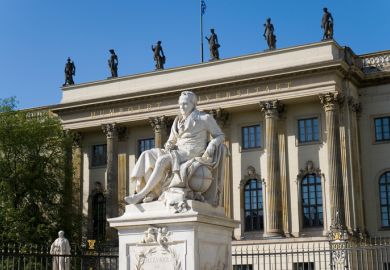Dale Jamieson is, I believe, the first person to write a book about climate change in the past tense. He has two reasons. The physical reason is that, with the carbon we have already added to the atmosphere and oceans, we are committed to centuries of warming and environmental change. The atmosphere is a better insulator than it was and the world will grow warm under our higher-tog duvet. His second reason is societal: he judges that we don’t have the institutions and commitments to make consequential emissions reductions. In many respects, he thinks the game was up in 2009 at the United Nations’ Copenhagen Climate Change Conference. He is sticking his neck out here, since the Intergovernmental Panel on Climate Change (whose latest Assessment Report came out in 2013-14) still stresses the options for addressing the problem. And those helping the UN prepare for the 2015 Paris meeting sweetly proclaim on their official website that they are “totally galvanized to ensure that a binding, fair, global climate agreement is reached”.
A good deal of the book is devoted to explaining why we – and particularly the US – have failed to address the problem. Jamieson provides a wide-ranging account, looking at the lack of political incentives to act and at the influence of organised climate denial. But he devotes most attention to two factors that looked as though they might have helped to resolve the problem but have not: economic reasoning about climate change, and climate ethics.
In the 2000s, the issue was thought of in economic terms, as in the UK’s Stern Review on the Economics of Climate Change. The argument was made thus: the costs of addressing climate change are lower than the harms that will result, so it is economically rational to act. Jamieson carefully documents how this strategy went wrong because it may also be economically rational to wait until we know how to respond in an even smarter way (for example, with new techniques for storing renewably generated electricity). Change a few assumptions about the way future harms are costed in today’s money, and it can be made to appear overwhelmingly rational to act right away or, on the other hand, to do nearly nothing now. Jamieson concludes that economics alone resolves little because the answer will depend on how one values future well-being, and this is an ethical issue.
He then conducts a thorough review of the ethics of climate change, emphasising the degree to which the whole problem has an ethical character. Advantaged people today are benefiting from practices – such as air travel – that cause environmental harm and store up very serious future problems. But his surprising conclusion is that it is extraordinarily hard for current ethical reasoning to express this problem precisely and in a way that has clear implications for individuals’ or groups’ actions. He deduces that ethical reasoning itself needs to be refined for a climate-changed world.
Jamieson concludes with some observations about things we can definitely do for the better right away (abandon coal), and with shrewd reflections on living with the knowledge that we flunked the climate test.
Reason in a Dark Time: Why the Struggle Against Climate Change Failed – and What it Means for our Future
By Dale Jamieson
Oxford University Press, 288pp, £19.99
ISBN 9780199337668
Published 24 April 2014
Register to continue
Why register?
- Registration is free and only takes a moment
- Once registered, you can read 3 articles a month
- Sign up for our newsletter
Subscribe
Or subscribe for unlimited access to:
- Unlimited access to news, views, insights & reviews
- Digital editions
- Digital access to THE’s university and college rankings analysis
Already registered or a current subscriber?





